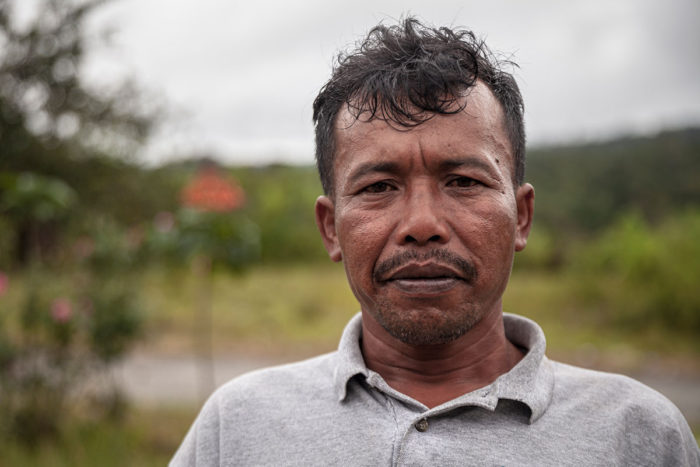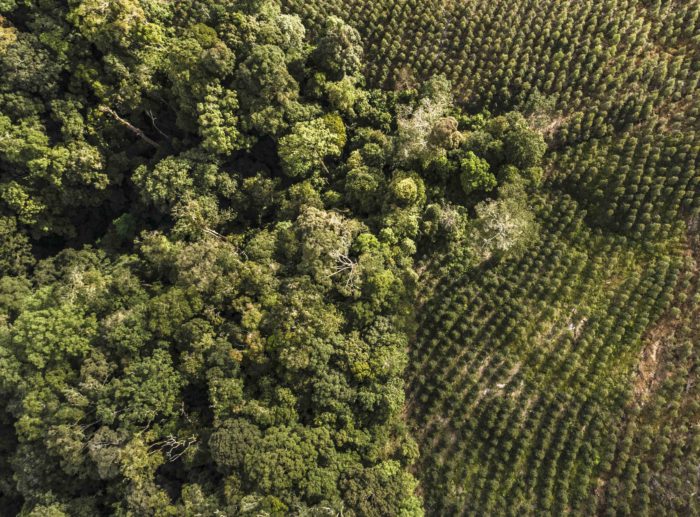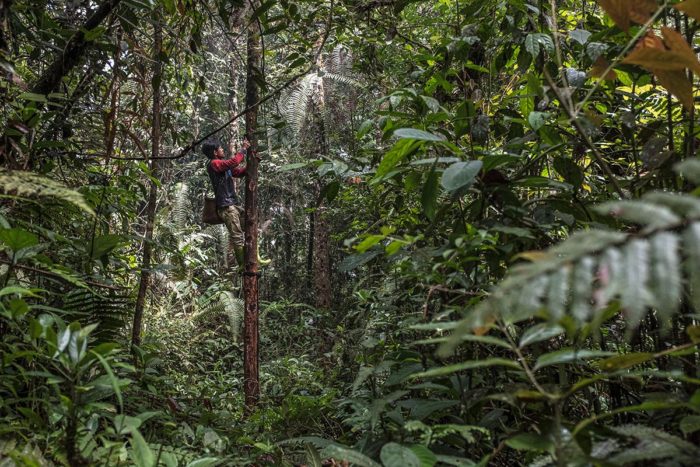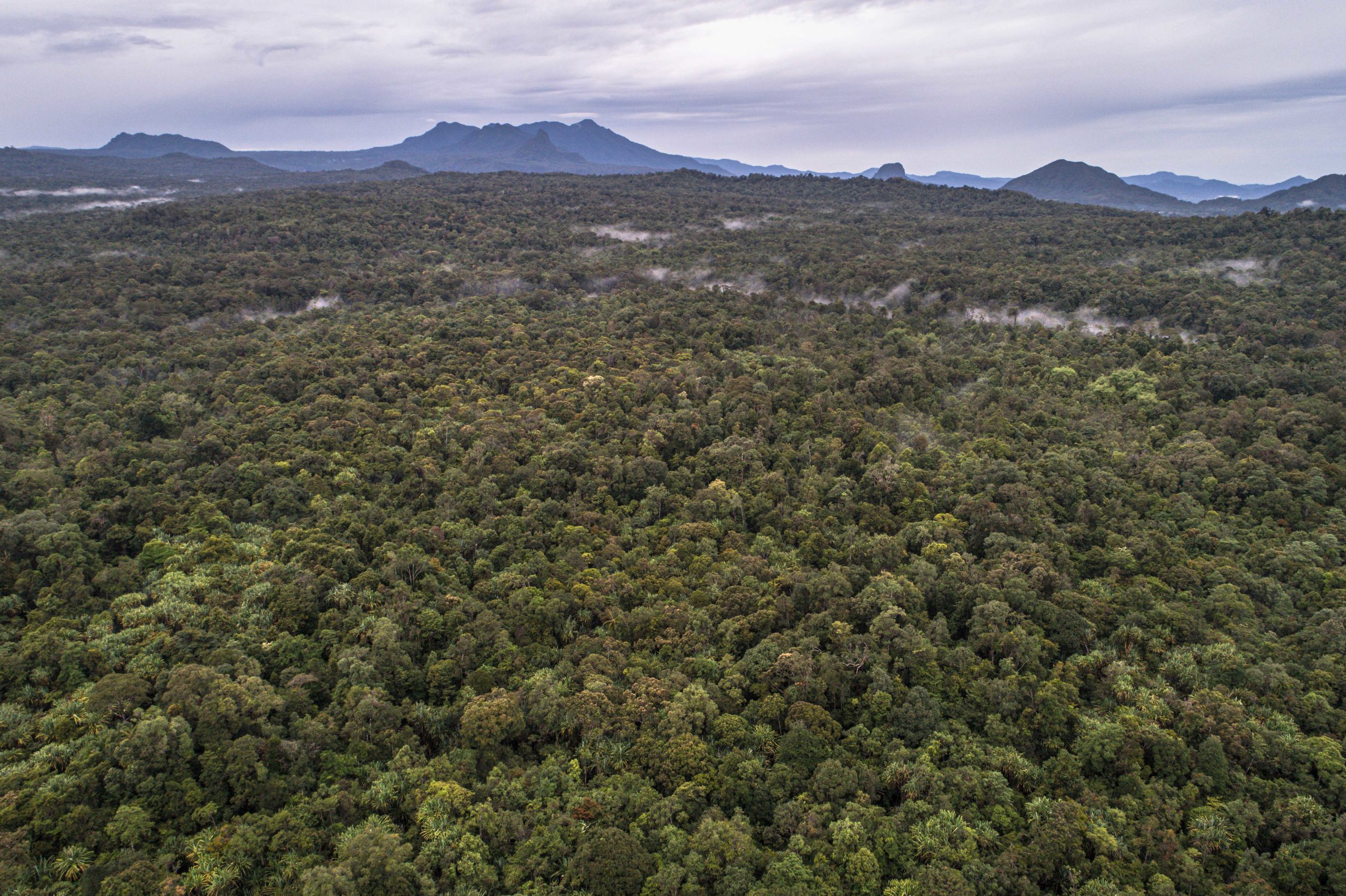Rajes Sitanggang walks quietly and confidently through the dense shrubs and trees — just like a New Yorker would walk down their street in their neighborhood without even thinking. Then, at a tall, slender tree, he stops. It’s a benzoin tree. Rajes touches its bark, pulls out a knife and cuts into it:
“The forest is the source of income for our daily needs. We earn so much from the forest. We are a part of the forest and it is a part of us. ”

Rajes is the raja huta, the village chief of the Pargamanan-Bintang Maria community in North Sumatra, Indonesia. Its people belong to the Indigenous Batak Toba Peoples who have taken care of their customary forests for many generations. The benzoin tree plays a central role for them and for Rajes’ community, as selling its frankincense-like tree sap has provided food, housing, and education for its people.
Right now their entire livelihoods are being threatened by pulp and paper giant Toba Pulp Lestari (TPL). The company has turned a portion of the communities’ ancestral lands into plantations and is potentially expanding its business— without their permission – and cutting down the ancient forests they depend on to survive. Rajes’ demand is clear: TPL must stop stealing their customary land that’s been under the community’s care for many generations.
“TPL should stay in the land they already have, not in our customary land. So TPL, let it go.“

This might look like the problem of a small group of people — but in fact it fits into a bigger picture: The picture of the insatiable, extraction-driven hand of corporations grabbing for the planet’s last resources for short term corporate profits at the expense of communities, wildlife, forests and our climate. From Indigenous lands Big Agribusinesses want to turn into pasture and plantations, like here in North Sumatra, to the oil and tar sands that the fossil fuel industry can’t seem to stop sucking out of and transporting across Native American tribal lands, these communities on the frontlines have one thing in common: They’re fighting for their birthright, which is the right to their lands.
“To the day I die, [the land] will stay with my children for generations. It will not be given away”
Rajes continues to speak about the benzoin trees and the forest in a matter-of-fact way, like something that is carved into him and his community. Something that he can’t even imagine disappearing.
Delima Silalahi knows this too well. She leads an Indigenous Rights organization and helps Rajes’ community with research and advocacy. She says:
“Indigenous Batak people are fighting for their customary land, because the land is their identity. If they lose their land, then they will lose their identity.”
But there’s also an ecological, global aspect to the connection between Indigenous Peoples and their lands: Loss of forests worldwide not only harms local Indigenous peoples but is also associated with the biodiversity crisis and the global climate crisis. And it’s proven that Indigenous people protect 80% of the world’s remaining biodiversity. Delima Silalahi can confirm this from her own experience:
“Forests that are now well-protected are those that have Indigenous communities protecting them, not the ones given to companies for concession.”

Like so many other Indigenous communities in Indonesia and across the world, Pargamanan-Bintang Maria is fighting back — and there’s a way we can join the fight and show solidarity from the other side of the world. What feeds the ruthless expansion of Big Agribusinesses like TPL is the demand for more and cheaper commodities from international brands. Brands like Procter & Gamble and Kao who are complicit in destroying the lives and livelihoods of communities like Pargamanan-Bintang Maria. Because the palm oil they use to make their products is from the same ruthless corporate giant that’s stealing Rajes’ communities’ lands — products that line our store shelves, from Crest toothpaste to Bioré facial cleanser to Heads and Shoulder shampoo.
Rajes Sitanggang gently touches the benzoin tree he had cut into earlier. He looks up into the tree canopy where the evergreen, lush leaves are glistening.
“We will continue to cultivate our land like our ancestors did. That’s how the Indigenous community here lives. [Because] We are the stewards of our customary land.”
————-
Learn more about the Pargamanan-Bintang Maria community and the Batak Toba Peoples >>here.












